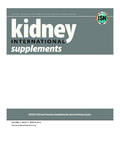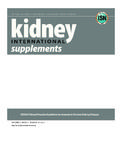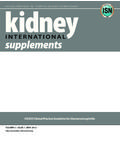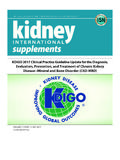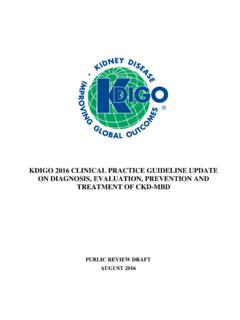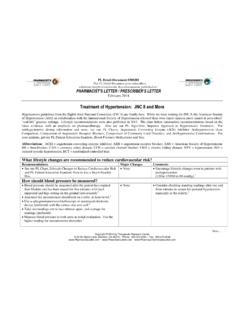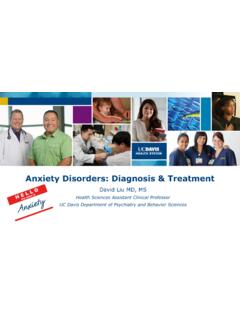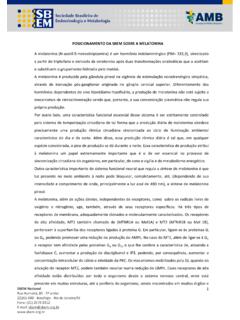Transcription of Executive summary of the 2020 KDIGO Diabetes Management …
1 OPENE xecutive summary of the 2020 KDIGO DiabetesManagement in CKD Guideline: evidence-basedadvances in monitoring and treatmentIan H. de Boer1, M. Luiza Caramori2, Juliana Chan3, Hiddo Heerspink4, Clint Hurst5,Kamlesh Khunti6, Adrian Liew7, Erin D. Michos8, Sankar D. Navaneethan9, Wasiu A. Olowu10,Tami Sadusky11, Nikhil Tandon12, Katherine R. Tuttle13, Christoph Wanner14, Katy G. Wilkens15,Sophia Zoungas16, Lyubov Lytvyn17, Jonathan C. Craig18,19, David J. Tunnicliffe19,20, Martin Howell19,20,Marcello Tonelli21, Michael Cheung22, Amy Earley22and Peter Rossing231 Kidney Research Institute, University of Washington, Seattle, Washington, USA;2 University of Minnesota, Minneapolis, Minnesota, USA;3 Department of Medicine and Therapeutics, Hong Kong Institute of Diabetes and Obesity, and Li Ka Shing Institute of Health Science, TheChinese University of Hong Kong, Hong Kong, China;4 University of Groningen, University Medical Center Groningen, Groningen, TheNetherlands;5 Patient Representative, Houston, Texas, USA;6 Diabetes Research Centre, University of Leicester, Leicester General Hospital,Leicester, UK;7 Mount Elizabeth Novena Hospital, Singapore.
2 8 Johns Hopkins University School of Medicine, Baltimore, Maryland, USA;9 Baylor College of Medicine and Michael E. DeBakey Veterans Affairs Medical Center, Houston, Texas, USA;10 Obafemi Awolowo UniversityTeaching Hospitals Complex, Ile-Ife, State of Osun, Nigeria;11 Patient Representative, Seattle, Washington, USA;12 Department ofEndocrinology and Metabolism, All India Institute of Medical Sciences, New Delhi, India;13 University of Washington, Spokane,Washington, USA;14 University Hospital of W rzburg, W rzburg, Germany;15 Northwest Kidney Centers, Seattle, Washington, USA;16 School of Public Health and Preventive Medicine, Monash University, Melbourne, Victoria, Australia;17 MAGIC Evidence EcosystemFoundation and Department of Health Research Methods, Evidence, and Impact, McMaster University, Hamilton, Canada.
3 18 College ofMedicine and Public Health, Flinders University, Adelaide, South Australia, Australia;19 Cochrane Kidney and Transplant, Sydney,New South Wales, Australia;20 Sydney School of Public Health, The University of Sydney, Sydney, New South Wales, Australia;21 Universityof Calgary, Calgary, Alberta, Canada;22 KDIGO , Brussels, Belgium; and23 Steno Diabetes Center Copenhagen and University ofCopenhagen, Copenhagen, DenmarkThe Kidney Disease: Improving Global Outcomes ( KDIGO )Clinical Practice Guideline for Diabetes Management inChronic Kidney Disease represents thefirst KDIGO guideline on this subject. The guideline comes at a timewhen advances in Diabetes technology and therapeuticsoffer new options to manage the large population ofpatients with Diabetes and chronic kidney disease (CKD) athigh risk of poor health outcomes.
4 An enlarging base ofhigh-quality evidence from randomized clinical trials isavailable to evaluate important new treatments offeringorgan protection, such as sodium-glucose cotransporter-2inhibitors and glucagon-like peptide-1 receptor goal of the new guideline is to provide evidence-basedrecommendations to optimize the clinical care of peoplewith Diabetes and CKD by integrating new options withexisting Management strategies. In addition, the guidelinecontains practice points to facilitate implementation wheninsufficient data are available to make well-justifiedrecommendations or when additional guidance may beuseful for clinical application. The guideline coverscomprehensive care of patients with Diabetes and CKD,glycemic monitoring and targets, lifestyle interventions,antihyperglycemic therapies, and self- Management andhealth systems approaches to Management of patientswith Diabetes and International(2020)98,839 848; : angiotensin-convering enzyme inhibitor; angiotensin II recep-tor blocker; chronic kidney disease; dialysis; evidence-based; GLP-1 receptoragonist; glycemia; glycemic monitoring; glycemic targets; guideline; HbA1c;hemodialysis; KDIGO ; lifestyle; metformin; models of care; nutrition; renin-angiotensin system; self- Management ; SGLT2 inhibitor; systematic review;team-based careCopyright 2020, KDIGO .
5 Published by Elsevier on behalf of theInternational Society of Nephrology. This is an open access article underthe CC BY-NC-ND license ( ).This is thefirst Kidney Disease: Improving Global Out-comes ( KDIGO ) Guideline for Diabetes Management inChronic Kidney Disease. The guideline comes at a pivotaltime, with substantial growth in the public health burden ofdiabetes and chronic kidney disease (CKD), and with recentdevelopment of new therapies applicable to this ,2 The goal of the new guideline is to provide evidence-basedrecommendations and practice points to optimize the clinicalCorrespondence:Ian H. de Boer, University of Washington, Kidney ResearchInstitute, Box 359606, 325 9th Ave, Seattle, Washington 98104, USA. or Peter Rossing, Steno Diabetes Center Copen-hagen, Niels Steensens Vej 2, DK 2820 Gentofte, Denmark.
6 Complete KDIGO Clinical Practice Guideline for Diabetes Managementin Chronic Kidney Disease is published inKidney International, volume 98,issue 4S, October 2020, which is available online 10 June 2020; revised 29 June 2020; accepted 29 June Executive conclusionsKidney International(2020)98,839 848839care of people with Diabetes and CKD by integrating newtherapies with existing Management approaches. The guide-line was written by an international Work Group thatincluded 2 patients and was diverse in clinical expertise,supported by a dedicated Evidence Review Team and pro-fessional KDIGO staff. The Work Group aimed to generate auseful resource for clinicians and patients that addressedrelevant questions with actionable recommendations, tookon controversial topics when there was sufficient evidenceto do so, and communicated evidence and recommendationsclearly.
7 The Grading of Recommendations Assessment,Development, and Evaluation (GRADE) framework was usedto evaluate the quality of evidence and strength of broad audience was targeted, including alltypes of clinicians caring for people with Diabetes and 1 Diabetes (T1D), type 2 Diabetes (T2D), and all se-verities of CKD, including patients treated with dialysis orPatients with Diabetes and CKD should be treated with a comprehensive strategy toreduce risks of kidney disease progression and cardiovascular disease (Figure 2).We recommend that treatment with an angiotensin-converting enzyme inhibitor (ACEi)or an angiotensin II receptor blocker (ARB) be initiated in patients with Diabetes , hypertension , and albuminuria, and that these medications be titrated to thehighest approved dose that is tolerated (1B).
8 We recommend advising patients with Diabetes and CKD who use tobacco to quit usingtobacco products (1D).We recommend using hemoglobin A1c (HbA1c) to monitor glycemic control in patientswith Diabetes and CKD (1C).We recommend an individualized HbA1c target ranging from < to < in patientswith Diabetes and CKD not treated with dialysis (Figure 3) (1C).Patients with Diabetes and CKD should consume an individualized diet high invegetables, fruits, whole grains, fiber, legumes, plant-based proteins, unsaturated fats,and nuts; and lower in processed meats, refined carbohydrates, and sweetened suggest maintaining a protein intake of g protein/kg (weight)/day for those withdiabetes and CKD not treated with dialysis (2C).We suggest that sodium intake be <2 g of sodium per day (or <90 mmol of sodium perday, or <5 g of sodium chloride per day) in patients with Diabetes and CKD (2C).
9 We recommend that patients with Diabetes and CKD be advised to undertakemoderate-intensity physical activity for a cumulative duration of at least 150 minutesper week, or to a level compatible with their cardiovascular and physical tolerance (1D).Glycemic Management for patients with T2D and CKD should include lifestyletherapy, first-line treatment with metformin and a sodium glucose cotransporter-2inhibitor (SGLT2i), and additional drug therapy as needed for glycemic control (Figures 4,5, and 6).We recommend treating patients with T2D, CKD, and an eGFR 30 ml/min per m2 with metformin (1B).We recommend treating patients with T2D, CKD, and an eGFR 30 ml/min per m2 with an SGLT2i (1A).In patients with T2D and CKD who have not achieved individualized glycemictargets despite use of metformin and SGLT2i, or who are unable to use those medications,we recommend a long-acting glucagon-like peptide-1 receptor agonist (GLP-1 RA) (1B).
10 We recommend that a structured self- Management educational program be implementedfor care of people with Diabetes and CKD (Figure 7) (1C).We suggest that policymakers and institutional decision-makers implementteam-based, integrated care focused on risk evaluation and patient empowerment toprovide comprehensive care in patients with Diabetes and CKD (2B).Chapter 1: Comprehensive care in patients with Diabetes and CKD Practice Point Recommendation Recommendation 2: Glycemic monitoring and targets in patients with Diabetes and CKD Recommendation Recommendation 3: Lifestyle interventions in patients with Diabetes and CKD Practice Point Recommendation Recommendation Recommendation 4: Antihyperglycemic therapies in patients with type 2 Diabetes (T2D) and CKD Practice Point Recommendation Recommendation Recommendation 5: Approaches to Management of patients with Diabetes and CKD Recommendation Recommendation 1| Recommendations and select practice points from the Kidney Disease.
